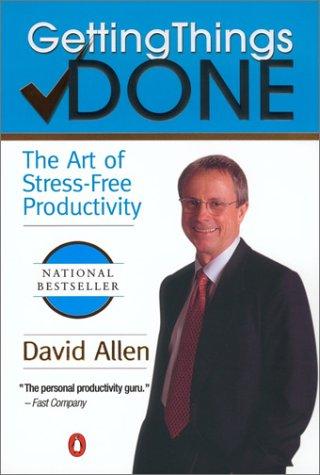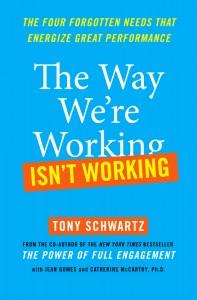Last week, I briefly introduced you to two of the prominent time management theories that have become quite popular in recent years. While both are valuable systems, they approach the topic from very different angles.
In today’s WorkPuzzle, I’ll summarize some of the highlights of both systems. As you read through these principles and ideas, think about the flow of your activities over the last week. How would things have been different if you had approached tasks in a different way?
Getting Things Done System / David Allen
1. The right system equips an individual to capture information and act upon it.
“People don’t capture stuff that has their attention. They don’t acknowledge it or objectify it. And it keeps rolling around in the organizational psyche as well as the personal psyche, draining energy and creating incredible psychic residue.”
2. The right system involves making lists and completing tasks.
“Your head is for having ideas, not holding them. Just dumping everything out of your head and externalizing it is a huge step, and it can have a significant effect… The problem is that everybody is multitasking and getting distracted by the latest and the loudest. They fail because they haven’t captured, clarified, organized, or built in a regular review system they trust.”
3. The right system involves breaking down big tasks into small “next actions.”
“What most people put on their to-do lists are vague things [that really represent a lot of work]. Instead, a to-do list should specify a smaller next action. There’s actually a part of us that loves to produce, that loves to be complete. Now I’ve created motivation: I see a desired result, I have confidence I can get there, and I see the path.”
The Energy Project / Tony Schwartz
1. Having the right state of mind involves realizing your limitations as a human.
“It is humbling to discover that we’re creatures of habit, and what we did yesterday is what we’re going to do today. We think that the way to make a change is to push harder, but our willpower and self-discipline are wildly overrated. [Change can only happen if you] co-opt the process by which negative habits arise without your intention, and substitute what we call 'positive rituals' or deliberate practices."
2. Having the right state of mind means reserving your most productive time of the day for the most important work.
“Another ritual I have is to always do the most important task of the day first thing in the morning, when I’m least distracted. Ninety percent of people check their email as soon as they get to work. That turns their agenda over to someone else.”
3. Having the right state of mind means recognizing that there is a natural pull the brain has towards ineffectiveness. This force must be met with deliberate practices that push you towards effectiveness.
“There’s a problem with making a decision based on how you’re feeling at any given moment. Generally speaking, that doesn’t work. Psychologically, we have two different selves. One is very primitive and reactive. The other is more evolved and reflective. People need to recognize when the primitive, reactive self is taking over and influencing them to avoid things that are uncomfortable.”
As you can probably tell, one system is not better than the other. In fact, being mindful of both approaches would probably do the most to improve your effectiveness. Hopefully, you’ll become a student of how you do your best work. This means both following a well-developed system and having your mind right as work through your tasks.
Quotations cited: Allen, David. Schwartz, Tony. Harvard Business Review, May 2011. Interview. 83 – 87. Print. 29 Apr 2011. <http://www.hbr.org>.
Editor's Note: This article was written by Ben Hess. Ben is the Founding Partner and Managing Director of Tidemark, Inc. and a regular contributor to WorkPuzzle. Comments or questions are welcome. If you're an email subscriber, reply to this WorkPuzzle email. If you read the blog directly from the web, you can click the "comments" link below.












